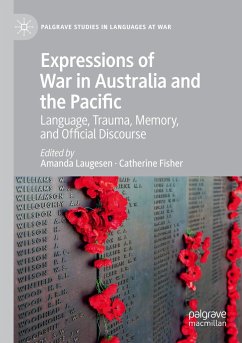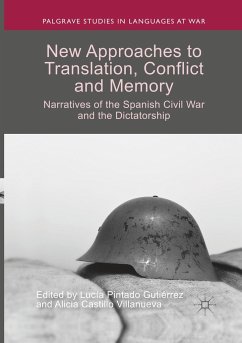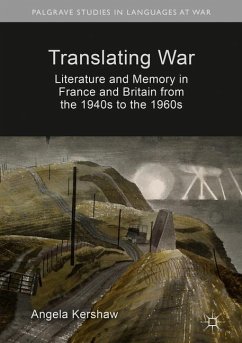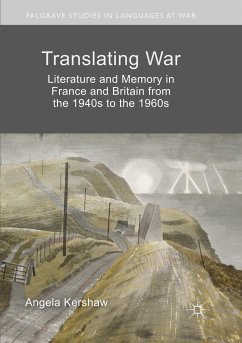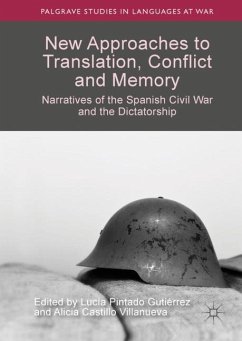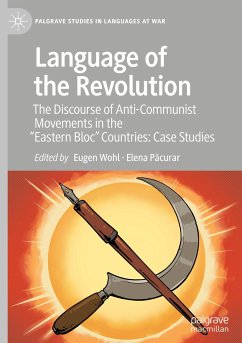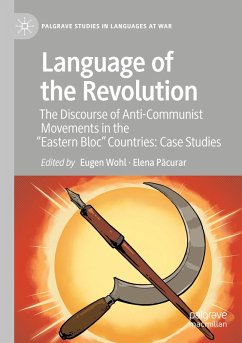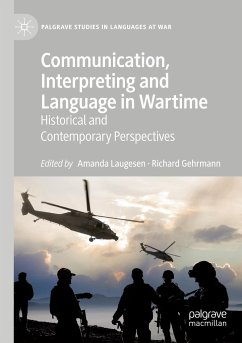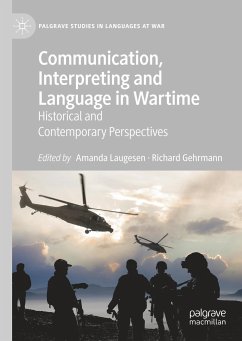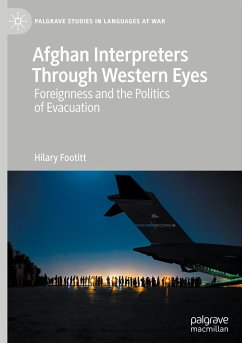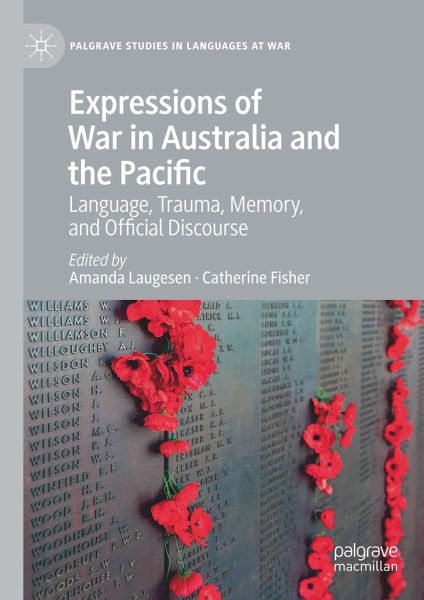
Expressions of War in Australia and the Pacific
Language, Trauma, Memory, and Official Discourse
Herausgegeben: Laugesen, Amanda; Fisher, Catherine

PAYBACK Punkte
38 °P sammeln!
This edited book includes chapters that explore the impact of war and its aftermath in language and official discourse. It covers a broad chronological range from the First World War to very recent experiences of war, with a focus on Australia and the Pacific region. It examines three main themes in relation to language: the impact of war and trauma on language, the language of war remembrance, and the language of official communications of war and the military. An innovative work that takes an interdisciplinary approach to the themes of war and language, the collection will be of interest to ...
This edited book includes chapters that explore the impact of war and its aftermath in language and official discourse. It covers a broad chronological range from the First World War to very recent experiences of war, with a focus on Australia and the Pacific region. It examines three main themes in relation to language: the impact of war and trauma on language, the language of war remembrance, and the language of official communications of war and the military. An innovative work that takes an interdisciplinary approach to the themes of war and language, the collection will be of interest to students and scholars across linguistics, literary studies, history and conflict studies.





